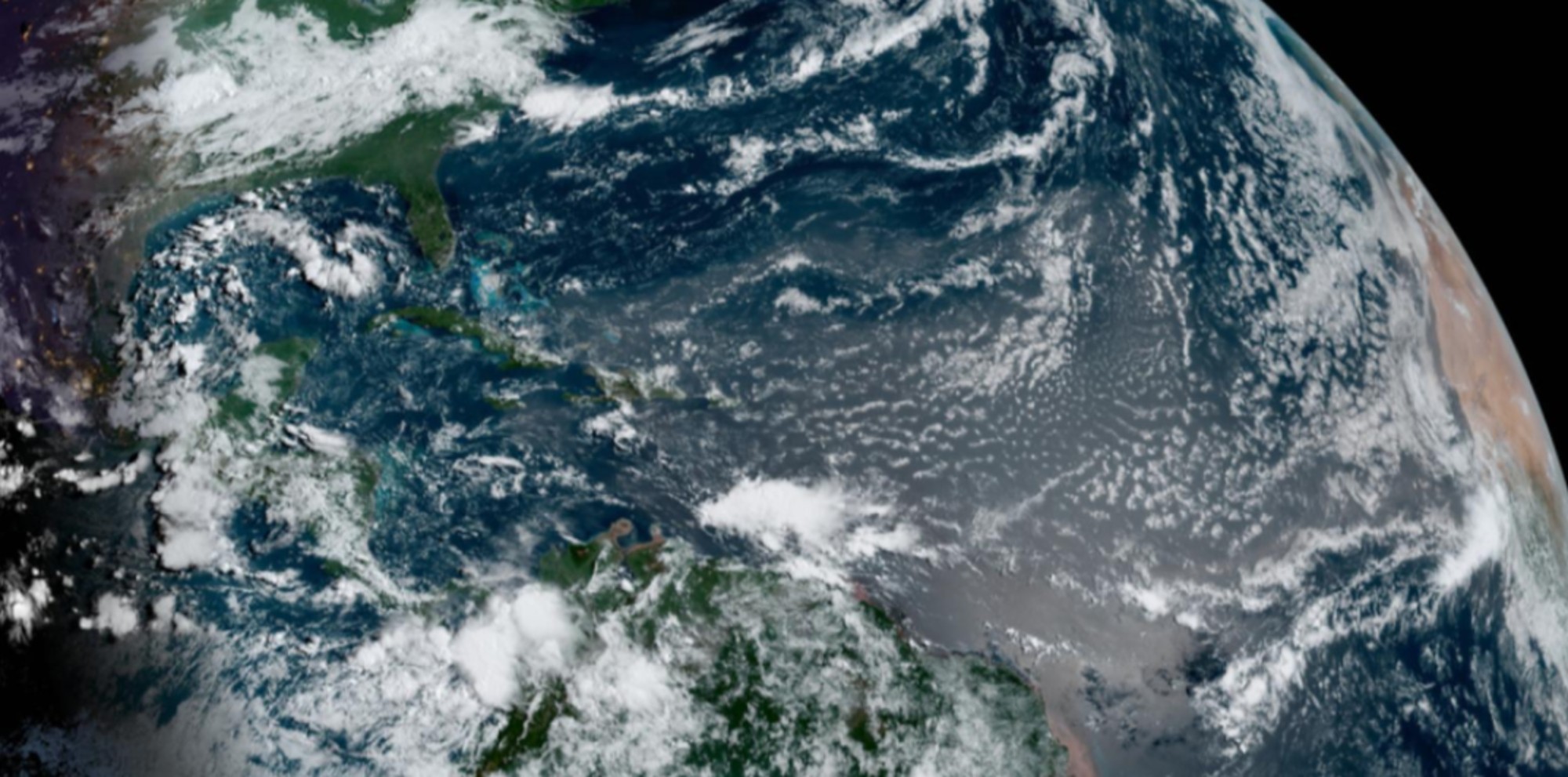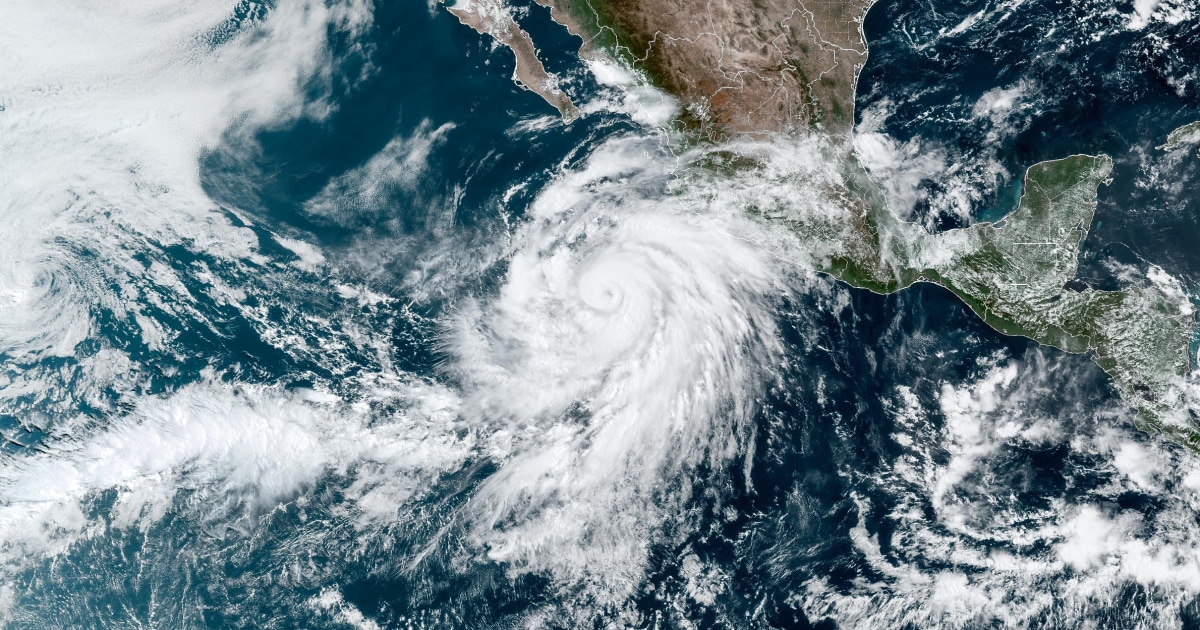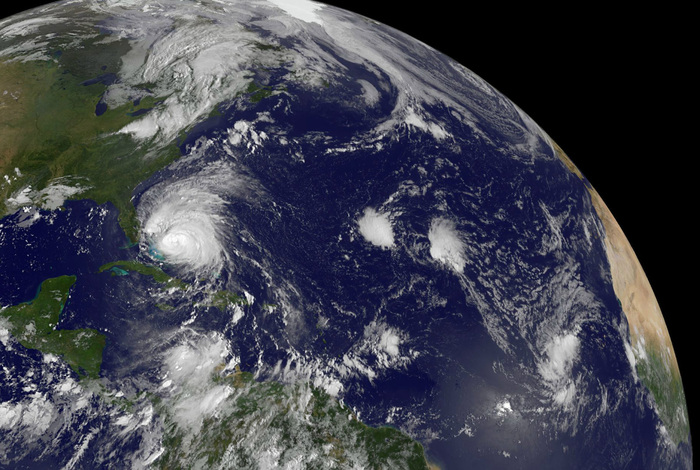US forecasts up to 6 major hurricanes this season 1:54
(CNN Spanish) --
The hurricane season in the Atlantic has been unusually calm so far.
There are at least two factors that explain it: wind shear and dry air.
However, according to experts, the situation could change soon and fast.
Exactly 17 years ago, on August 29, 2005, Hurricane Katrina made landfall near New Orleans, killing more than 1,800 people and causing $125 billion in property damage.
Until now, the panorama of 2022 has no point of comparison.
Three named storms have been recorded in the Atlantic since the season began, Alex, Bonnie and Colin, and you may not even remember them, as meteorologist Jennifer Gray explains here.
"If you blinked, you missed it. Colin formed on land in South Carolina and barely survived about 24 hours," she said.
The situation is exceptional.
This is just the fifth year since 1950 that no named storms have formed in the period from July 3 to August 26, according to Philip Klotzbach, a Colorado State University meteorologist who specializes in hurricane season forecasting. of the Atlantic.
But why?
advertising
Two factors at play: wind shear and dry air
There are two factors that explain the calm in the Atlantic basin in the months of July and August, according to meteorologist Taylor Ward, of the CNN team.
For one, there is above-normal wind shear—or wind shear.
"Wind shear is the change in wind speed and strength with height in the atmosphere. High levels of wind shear prevent tropical disturbances from developing into well-organized systems and can also disarm systems that do form," he explained.
The fact that above-normal shear is being recorded is "surprising," according to Ward, because the La Niña pattern tends to have the opposite effect, that is, a reduction in shear over the Caribbean and tropical Atlantic.
A second influencing factor is dry air, which, like wind shear, "limits the growth of storm activity from tropical waves," Ward said.
The dry air, in this case, is the result of Saharan dust leaving Africa and moving through the Atlantic basin.
The high point has not yet arrived
The fact that the season has been quiet so far does not provide guarantees for the coming months.
As Ward explained, the peak of the season is about two weeks away (it's September 10) and "things can change quickly."
"In an average season, the vast majority of major hurricanes (categories 3 to 5) occur between mid-August and mid-October, so we are entering the heart of the season," he explained.
Klotzbach, for his part, also assured last Friday that the signs suggest that the activity in the Atlantic will be greater or potentially much greater in the coming days.
Another numerical fact is revealing: in the last four years there have been, in each case, 10 or more named storms after September 1.
season above normal
In the latest forecast update for the current hurricane season, which is from August 4, the National Oceanic and Atmospheric Administration (NOAA) said an above normal season was still expected. .
By then it had already been a less active start compared to the last two years but, even so, the probability of an above-average season was estimated at 60%.
The agency forecast was between 14 and 20 named storms.
This figure, however, represented a small decrease compared to the May forecast, where between 14 and 21 were expected.
"Although the start of the hurricane season has been relatively slow, with no major storms developing in the Atlantic, this is not unusual and therefore we cannot afford to let our guard down," Deanne Criswell said in early August. , the administrator of the Federal Emergency Management Agency (FEMA, for ever in English), when NOAA updated its forecasts in August.
"The next Ida or Sandy could be lurking," she added.
With reporting from CNN's Jennifer Gray, Taylor Ward, Allison Chinchar and Payton Major.














